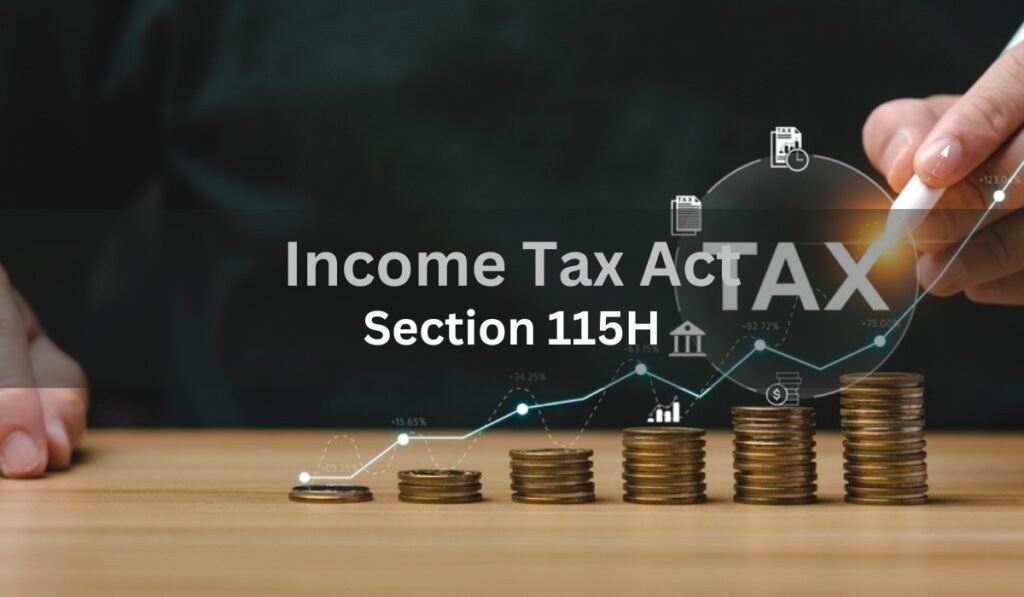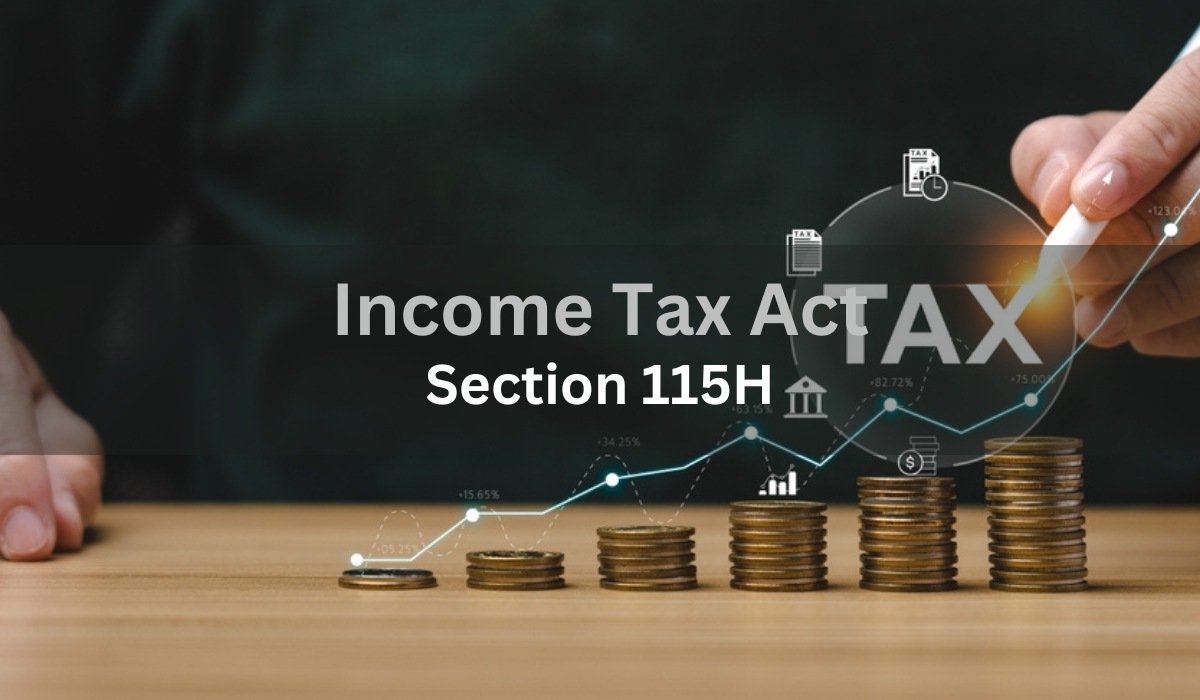India’s Income Tax Act has several provisions that provide benefits to non-resident Indians (NRIs) when it comes to their investment income. One such provision is Section 115H, which allows NRIs to continue enjoying the tax benefits available to them even after they become residents in India. In this blog, we’ll explore the key aspects of Section 115H and how it helps NRIs safeguard their tax benefits.
What is Section 115H of the Income Tax Act?
Section 115H of the Income Tax Act falls under Chapter XII-A, which outlines special provisions relating to the income of non-resident Indians. The section specifically caters to the situation where an NRI, after having enjoyed the tax benefits under this chapter, becomes a resident in India. Despite the change in residency status, the NRI can still avail of the benefits of Chapter XII-A by following the procedure outlined in Section 115H.

Key Features of Section 115H
Let’s break down the core components of this section:
- Eligibility: Section 115H applies to an individual who was an NRI in any previous year but has since become a resident of India in a subsequent year. This is crucial as it acknowledges that despite their new resident status, these individuals might still have foreign investments that qualify for special tax treatment.
- Declaration to Continue Benefits: To continue enjoying the tax benefits provided under Chapter XII-A, the individual must file a declaration with the Assessing Officer. This declaration is filed alongside the return of income under Section 139 for the assessment year in which they become assessable as a resident.Why is the declaration important?
By filing this declaration, the individual ensures that the provisions of Chapter XII-A, particularly those related to the taxation of investment income from foreign exchange assets, will continue to apply even after their status has changed to “resident.” - Applicable to Foreign Exchange Assets: The benefits under Section 115H apply specifically to the investment income derived from foreign exchange assets. Foreign exchange assets refer to investments such as:
- Shares in an Indian company purchased in foreign exchange
- Deposits with banks in India made in foreign currency
- Other specific foreign assets as defined under Section 115C
Continuance of Benefits: Once the declaration is made, the benefits will continue for the year in which the individual becomes a resident and for every subsequent year. However, these benefits will cease once the foreign exchange assets are transferred or converted to assets that are not eligible under this section.
Example: How Section 115H Works in Practice
Let’s consider an example to understand the application of Section 115H:
Mr. Raj, an NRI, has been investing in shares of Indian companies using foreign currency. For the past five years, he has been earning dividend income from these shares and has been taxed under Chapter XII-A, which offers concessional rates for NRIs. In 2024, Mr. Raj shifts his base to India and becomes a resident.
Despite becoming a resident, Mr. Raj can continue to avail of the special tax rates under Chapter XII-A for his investment income. All he needs to do is file a declaration under Section 115H, along with his return of income for the assessment year 2024-25. This will ensure that he continues to receive tax benefits until he decides to transfer or convert these foreign exchange assets.
What Happens If the NRI Chooses Not to File the Declaration?
If an individual who becomes a resident fails to file the declaration, the benefits under Chapter XII-A will no longer apply. Instead, the investment income from foreign exchange assets will be taxed at the regular rates applicable to residents. Therefore, filing the declaration on time is essential for continuing the tax benefits under this section.
How Long Does the Benefit Last?
The benefits under Section 115H will last until the foreign exchange assets are transferred or converted into non-qualifying assets. This means NRIs who have settled in India can continue enjoying these tax concessions as long as they maintain the foreign exchange assets in their portfolio.
FAQs
- Who is eligible to claim benefits under Section 115H?
Section 115H benefits can be claimed by individuals who were NRIs and have since become residents in India, provided they file a declaration with their income return. - What kind of assets are covered under Section 115H?
The benefits apply to foreign exchange assets like shares of Indian companies purchased in foreign currency, deposits made in foreign currency, etc. - Can an NRI lose the benefits under Section 115H?
Yes, the benefits are lost if the NRI fails to file the declaration or if the foreign exchange assets are transferred or converted into non-qualifying assets. - What happens if the declaration under Section 115H is not filed?
If the declaration is not filed, the individual will no longer enjoy the tax benefits under Chapter XII-A, and their investment income will be taxed as per the rates applicable to residents.
Conclusion
Section 115H of the Income Tax Act provides a significant advantage to NRIs who have settled in India but continue to hold foreign exchange assets. By filing the necessary declaration, these individuals can continue to benefit from the favorable tax treatment on their investment income. This section is a great way for NRIs to optimize their tax planning as they transition to being residents in India.
For more information on NRIs and tax benefits, visit SmartTaxSaver, where we provide in-depth insights on various sections of the Income Tax Act.




